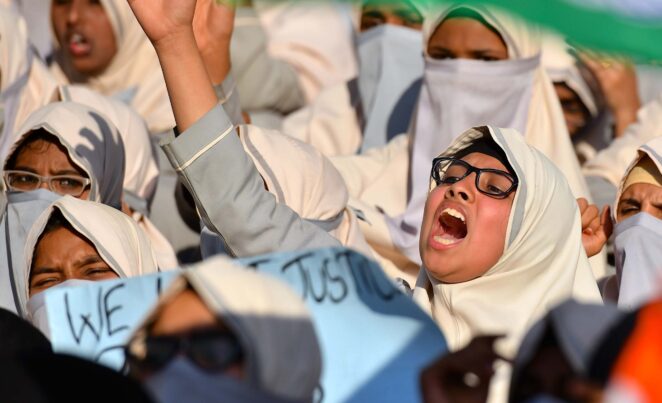The concept of freedom is universal and fundamental to human dignity. It is the bedrock on which societies are built, and its importance cannot be overstated. However, despite its importance, the definition of freedom can vary greatly from one nation to another. In some countries, there is a strong sense of pride in their liberal policies, with citizens enjoying a wide range of rights and freedoms. However, in other nations, strict regulations are enforced, limiting the freedoms of those living under their rule.
The reasons for these differences can be complex and varied. It could be due to cultural, historical, or political factors, or a combination of all three. For example, some countries may have a history of authoritarian rule, where individual freedoms were suppressed in favor of maintaining order and control. In such cases, it can be difficult to shift the mindset and values of the population towards a more open and liberal society.
In this article, we will take a closer look at why some countries have limited freedom and what is prohibited in different parts of the world. We will examine the factors that contribute to these differences and explore potential solutions for creating a more open and free society. Ultimately, the goal is to promote a deeper understanding of the importance of freedom and to encourage greater tolerance and respect for individual rights and liberties.
Why There Is No Freedom in Some Countries

There is no single answer to why some countries do not provide freedom to their citizens. In some cases, it is due to a lack of democracy and the rule of law. In other cases, it may be due to cultural or religious factors. Countries with authoritarian governments often have strict censorship laws, restrict freedom of speech, and limit political opposition.
What Is Prohibited in Different Countries
Different countries have different laws and regulations that prohibit certain activities. Here are some examples:
Saudi Arabia

In Saudi Arabia, women face various restrictions that limit their freedom of movement and personal autonomy. One of the most notable restrictions is the ban on driving, which has been in place for decades. This means that women are often reliant on male family members or hired drivers to transport them to work, school, or other destinations.
Additionally, women are required to have a male guardian, known as a mahram, in order to travel outside of the country. The mahram is responsible for granting permission and accompanying the woman on her journey. While some argue that these restrictions are in place to protect women, others view them as outdated and oppressive. The issue of women’s rights in Saudi Arabia is complex and ongoing, with activists continuing to push for greater equality and autonomy.
North Korea

North Korea is a country that is known for its strict laws and regulations. One of the many rules in the country is that citizens are not allowed to travel outside of the country without first obtaining permission from the government. This requirement is part of the government’s efforts to maintain control over its citizens and prevent defections to other countries. As a result, North Koreans are largely isolated from the rest of the world and have limited opportunities to explore other cultures and ways of life. Despite this, many North Koreans continue to live their lives with resilience and hope for a brighter future.
Ukraine
In Ukraine, men cannot leave the country without special permission.
Turkey

In Turkey restricted online casinos such as pinup casino.
Singapore
In Singapore, chewing gum is prohibited, and those caught selling or importing it can be fined or imprisoned.
Russia
In Russia, it is illegal to promote homosexuality. This law has been widely criticized by human rights organizations around the world. The law was passed in 2013 and has been the subject of much controversy since then. Supporters of the law argue that it is necessary to protect traditional values and prevent the spread of homosexuality, which they see as a threat to Russian society. However, opponents argue that the law is discriminatory and violates the rights of the LGBT community. The law has also been criticized for promoting violence and discrimination against LGBT individuals. Despite international pressure, the Russian government has not shown any signs of repealing the law.

It is crucial to be aware of different laws and regulations when traveling to a foreign country, as they may differ from those in your home country. Failure to comply with these laws can result in serious consequences, including fines, imprisonment, or deportation. It is therefore essential to research and understand the local laws and customs before embarking on your journey.
For instance, some countries have strict rules on the consumption of alcohol or drugs, and violating these laws can result in severe punishment. In other countries, it is illegal to take photographs of certain buildings or landmarks. Moreover, some countries prohibit certain items from being brought into the country, such as firearms or certain types of medication.
It is also worth noting that laws and regulations can vary between regions within a country, and it is advisable to research the specific laws of the area you will be visiting. In addition to studying the laws, it is also important to respect the local customs and traditions of the country, which can differ greatly from those in your home country.
By understanding and following the laws and customs of the country you are visiting, you can ensure a safe and enjoyable trip without running into any legal issues.
Conclusion
Freedom is a fundamental human right that has been enshrined in various international human rights conventions, such as the Universal Declaration of Human Rights and the International Covenant on Civil and Political Rights. However, despite these conventions, the reality is that freedom is not always guaranteed in different countries around the world. There are various reasons why some countries restrict freedom, such as political instability, authoritarian regimes, or cultural and religious differences.
It is important to understand these reasons and what is prohibited in different countries in order to ensure the safety and well-being of citizens and foreign visitors alike. This includes being aware of restrictions on freedom of expression, association, and movement, as well as knowing the consequences of violating these restrictions. Moreover, understanding the impact of the lack of freedom on individuals and society as a whole is also important for advocating for change and promoting human rights worldwide.



